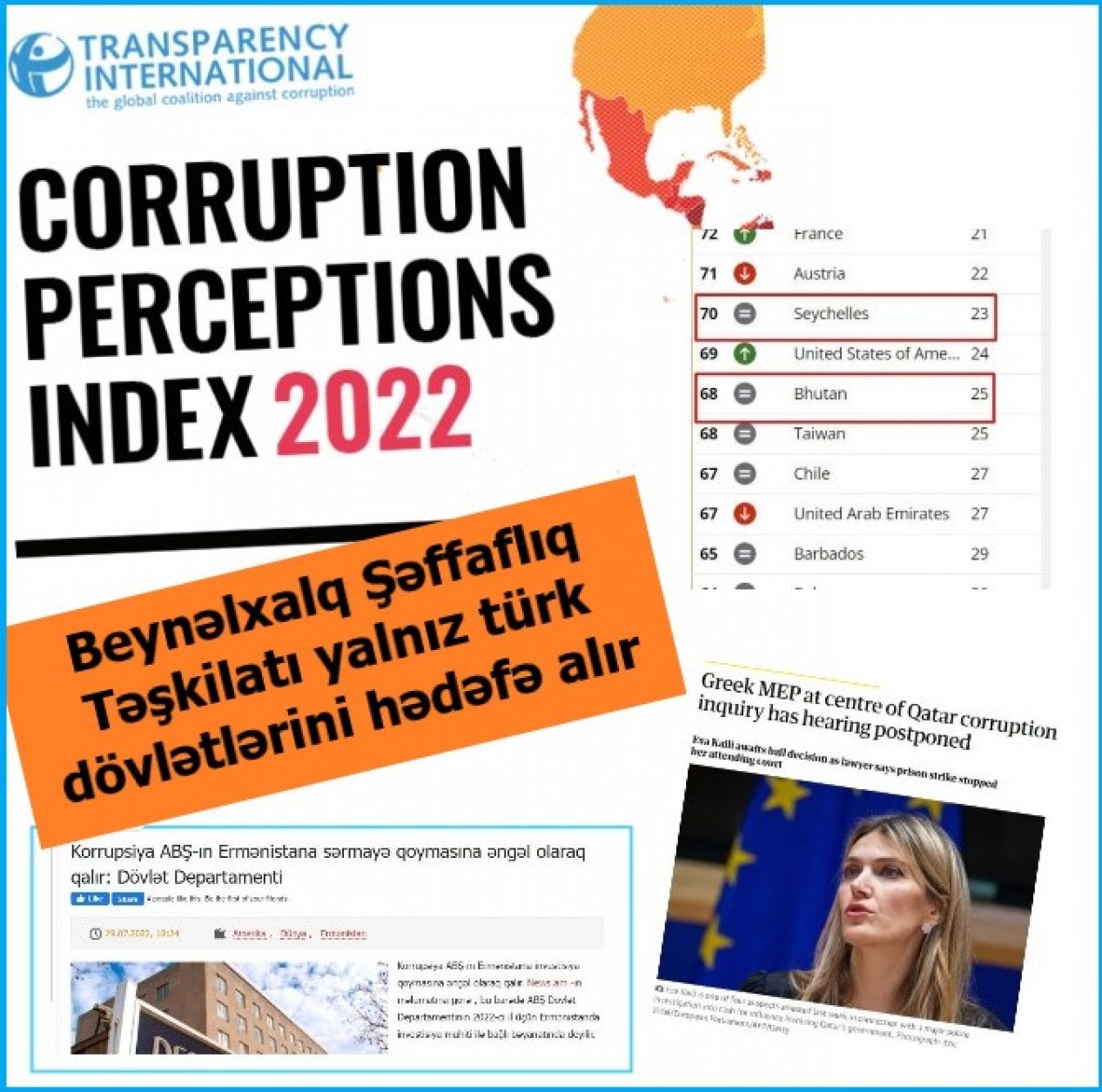
The international non-governmental organization Transparency International has published the Corruption Perceptions Index in the public sector for 2022. The top 10 corruption-free countries include Denmark, Finland, New Zealand, Norway, Singapore, Sweden, Switzerland, the Netherlands, Ireland and Germany. South Sudan, Syria and Somalia come in the end of the ranking.
Azerbaijan ranks 157th. Russia ranks 137th, Ukraine 116th, Turkiye 101st, Armenia 63rd, Georgia 41st.
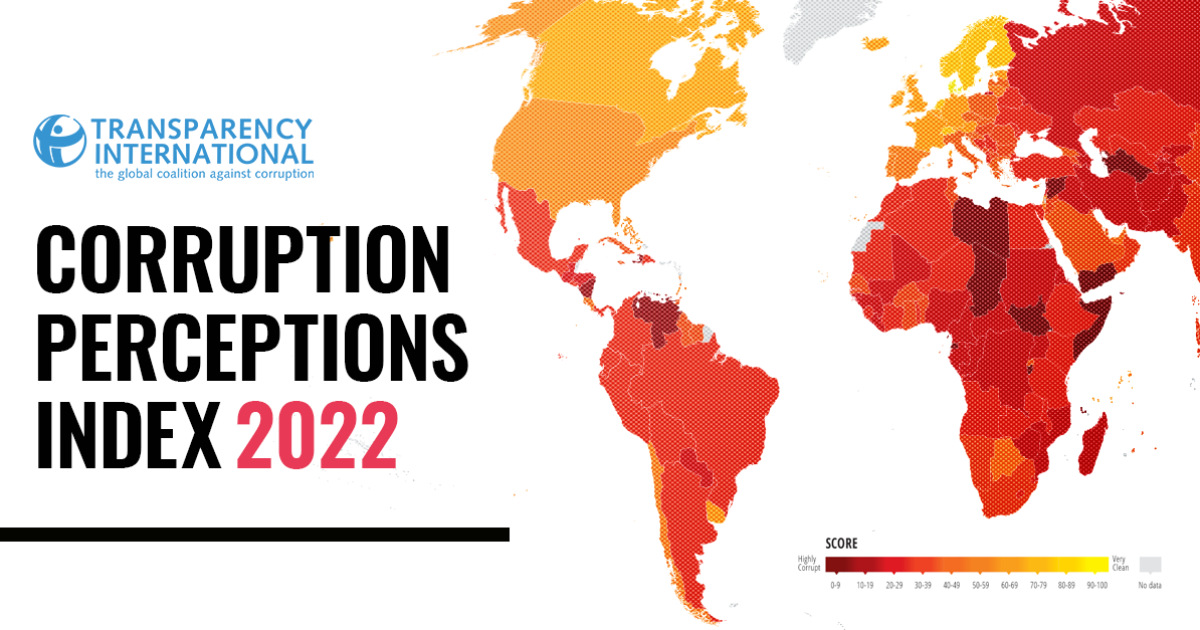
Faktyoxla Lab. has examined the "2022 Corruption Perceptions Index" report published by the Transparency International and has tried to determine whether or not the claims are justified.
Transparency International is funded by a number of countries, including the US, and by private funds, including the US billionaire financier George Soros Foundation.
The main leaders of Transparency International are suspected, in particular, of links with the CIA and the British intelligence service Mi-6. Transparency International’s research has often been the subject of criticism, both in terms of results and ranking methods. The Corruption Perceptions Index is compiled by the organization mainly only from the statements of other non-governmental organizations and media data, in addition, according to experts, the technology of combining data into a single index allows the index to be adjusted to any result.
From the list of countries included in the report, it can be seen that the organization, adhering to its tradition, still conducts measurements based on a more biased approach. In many countries, the results of reforms related to corruption in recent years are not taken into account. source
Let's give some examples.
It is not new that Seychelles is one of the dirty money flow routes of modern global imperialists. This island-state has a long history of corruption scandals. In the last 19 years, influential and high-ranking people have gained a lot of "experience" in money laundering on this island. The Seychelles Trust Company (STC), known internationally as an offshore financial center, has become a resident agent "paradise" for foreign companies and funds registered on the island. For a long time, many French officials have turned this island into a "laundromat". High-ranking officials of law enforcement agencies are arrested every year in Seychelles for arms, drug trafficking crimes, etc. Despite corruption arrests, economic crime is rampant. source
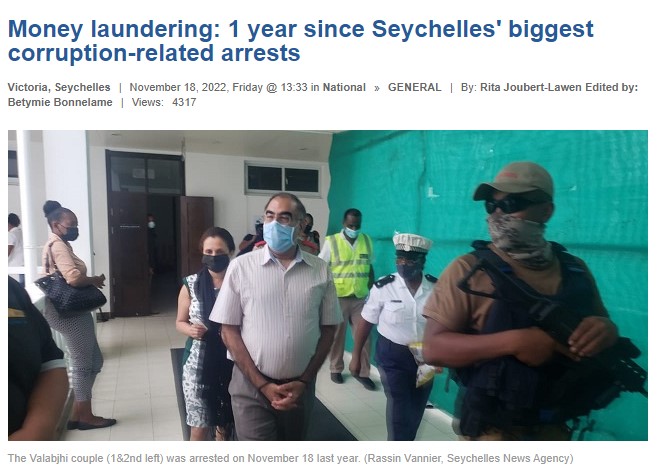
However, this island-country was evaluated as a reforming state in the international anti-corruption report and ranked 23rd.
Another fact. Ruled by the absolute power of the king, where armed murders are commonplace, banking and financial fraud and fraud flourish, Bhutan is ranked 25th. The fact that one of the worst-affected countries, where economic crime is rampant, where labor, sexual exploitation and domestic slavery have become commonplace, where business owners are often murdered, and where the main economic potential is based on drug trade, ranks first in the transparency index, gives an initial impression of the objectivity of the report. source
Information about Bhutan's ranking, socio-economic, political and criminogenic situation is given in the following two screenshots. No further comment is needed.
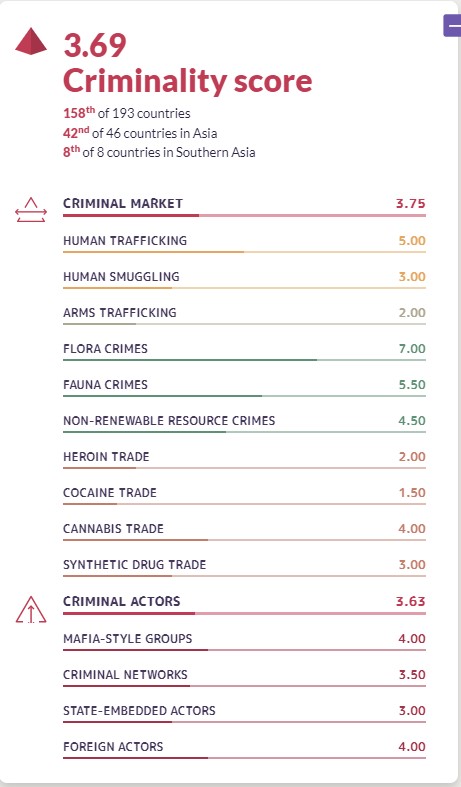
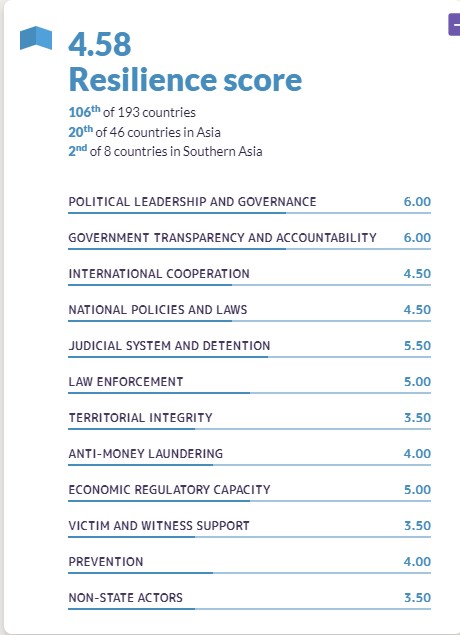
It can be clearly seen from the reports of the International Monetary Fund (IMF) that corruption is the main factor that inhibits economic development in the countries of the African continent and Latin America, and that affects the stability and investment environment in the countries. According to IMF experts' reports, corruption risks remain a threat in Chile, Botswana, Barbados, Panama, Dominican Republic, Costa Rica, Niger, Nigeria, Chad, Gambia, Rwanda, Cote d’Ivoire, Ghana, Senegal, Trinidad and Tobago, Burkina Faso, Solomon Islands and other countries. Similar characteristics of corruption crimes in those countries include drug trafficking, money laundering, tradition of bloody clashes for economic wealth, failure of economic laws, unequal distribution of wealth based on the orders of various state officials, etc. source
However, the Transparency International in its report presents those countries as states that have made considerable progress. For example, Chile, which is considered the main route of drug trafficking and the incomparable homeland of dirty money, was awarded the 27th place in the global corruption ranking. Considered an offshore destination, Barbados ranks 29th and the Bahamas ranks 30th. Botswana, Cape Verde ranked 30th. Also, as emphasized by the IMF, St. Lucia and Costa Rica, where the economic resources monopolized by the tribal leaders are appropriated, are classified in the top 40 countries. Putting a system accompanied by bloody clashes for money, property, and wealth by armed groups like Rwanda in the 54th place, or presenting Namibia in the 59th place as a more transparent country than Turkiye and Azerbaijan, is a stain on the name of transparency in the world. The inclusion of countries such as Ghana, Senegal, Burkina-Faso, Solomon Islands, Trinidad and Tobago, where the economy is governed by tribal rules, to the group of 70 also casts doubt on the organization's transparency report. Also, Suriname, Tunisia, Colombia, Ethiopia, Ivory Coast, Tanzania, Ecuador, Gambia, Angola, Kenya, Niger and other countries were decided ahead of Azerbaijan and Turkiye.
Russian version available here
Armenia ranks 63rd in the "2022 Corruption Perceptions Index", and it goes without saying that the idea that this country is progressing thanks to reforms cannot be accepted. In recent years, Armenia has been criticized by various international organizations, the US and other countries for corruption. A few months ago, the US State Department said in its statement on the investment climate in Armenia in 2022 that corruption remains an obstacle for the United States to invest in Armenia. Quote: “Corruption remains an obstacle to U.S. investment in Armenia, particularly as it relates to critical areas such as the justice system and concerns related to the rule of law, enforcement of existing legislation and regulations, and equal treatment. Investors claim that the health, education, military, corrections, and law enforcement sectors lack transparency in procurement and have in the past used selective enforcement to elicit bribes. Judges who specialize in civil cases are still widely perceived by the public to be corrupt and under the influence of former authorities. The effectiveness and independence of newly formed anti-corruption institutions remains to be seen. Some individuals have voiced concerns around whether certain judicial representatives and law enforcement leaders have been selected objectively. The potential for politically motivated, outside influence on these anti-corruption institutions, as well as law enforcement bodies and prosecutorial services, also remains a concern.”
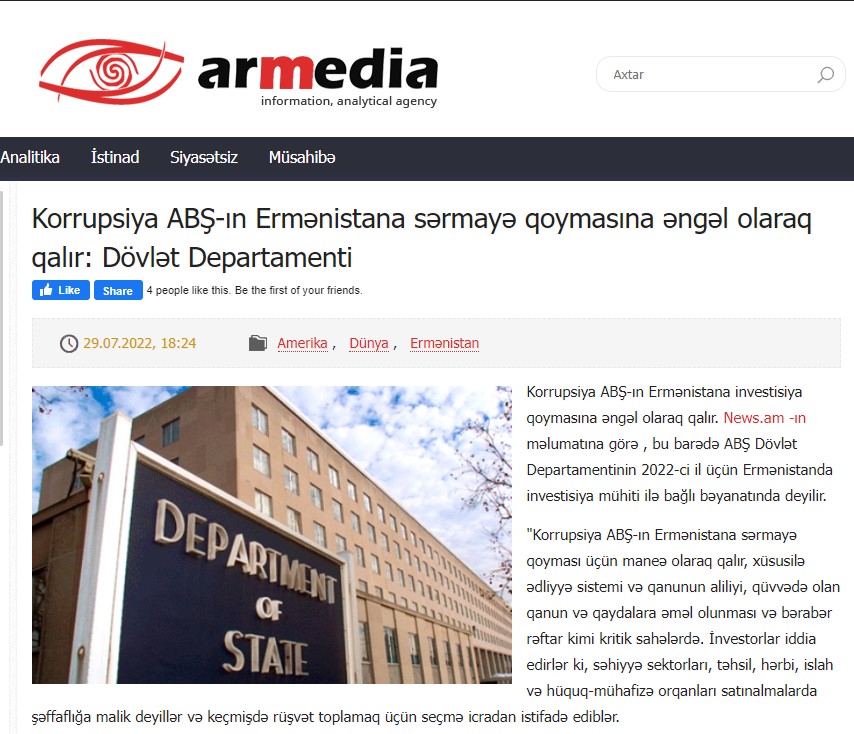
Armenian authorities also acknowledge the increase in economic crimes. According to the statistics of the Directorate for Combating Crimes Against Economic Activities of the General Prosecutor's Office of Armenia for the nine months of 2022 (the final figures of 2022 have not been disclosed), 1,184 criminal cases were monitored, and the number of economic crimes increased. Thus, criminal cases related to illegal entrepreneurship, fake bankruptcy, illegal financing, embezzlement of taxes, fees or other mandatory payments, misuse of public funds and money laundering increased. source
According to information published in the Armenian media and public sector, the government is deceiving people under the name of fighting corruption. The article published in the "Voice of Armenia" newspaper states that the "fight against corruption" is actually throwing ashes in the eyes of the "civilized world". Quote: "In recent months, the authorities have started an apparently violent action against corruption. Information about the intention to confiscate the illegal property of this or that former official, the disclosure of corruption schemes or individual cases in this or that department, the detention of employees of state institutions, the return of millions and billions of funds to the budget, etc., is constantly spreading. The salaries and benefits of the structures involved in these important jobs are constantly regulated to ensure that they are not disrupted. Obviously, protectionism and anti-corruption actions serve to protect the existence of a certain group of "untouchables" - people from Pashinyan's close circle." source
Multi-million-dollar tenders in the country are awarded to people who are part of Pashinyan's team. For example, the brother of Alen Simonyan, who holds a high position in the government team, set up a scheme for genuine corruption in tenders. Also, the machinations of another official, Tigran Avinyan, in the field of communication and the Internet, the dark affairs of the banking sector, Kajaran copper-molybdenum plant are examples of immeasurable state corruption.
Avetik Ishkhanyan, chairman of the Helsinki Committee of Armenia, said that corruption was rampant in the previous regime, and the current government's efforts have become a political tool to punish its political opponents and redistribute their property in favor of its supporters. Also, the lack of action against former corrupt government officials loyal to the current government has undermined confidence in anti-corruption measures. source
The reality is that the unfair approach of the Transparency International, which prepared the report, aimed not only at Azerbaijan, but also at the Turkic states, has been repeated many times. Even Hungary, which has been a member of the Organization of Turkic States in recent years, has become an integral member of the Turkic Family, and because of this has faced injustice by the Council of Europe and the European Parliament several times, has faced the same fate in the corruption report. This is the political side of the matter. In other words, Transparency International shows that it fulfills the orders of various political groups and is controlled, especially by organizations such as the Council of Europe and the European Parliament.
The Transparency International did not include a single sentence in its report about the unprecedented corruption scandals that took deep roots in prestigious institutions such as the Council of Europe and the European Parliament and shook the world in 2022. Last year, the vice president of the European Parliament, Ms. Eva Kaili, and a large corruption network that collaborated with her were exposed, along with several deputies were arrested. Information about the bribery and corruption scandals of Eva Kaili, the MP representing Greece, and her main partners, the French MPs, were widely covered in the world media. The euros in the suitcase discovered by the Belgian law enforcement agencies in the house where the deputy lives were shown. Reference
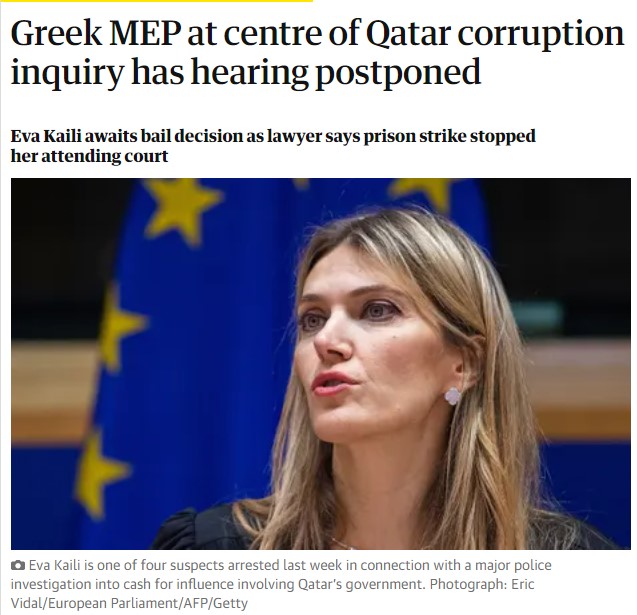
All these facts confirmed that the big lobby groups, which control the network of bribery and corruption in the European Parliament, have a special privilege and role. Among them, the astonishing corruption of Niccolo' Figa-Talamanca, who runs the No Peace Without Justice lobby group based in Brussels - in a building next door to the European Parliament - is still under investigation.
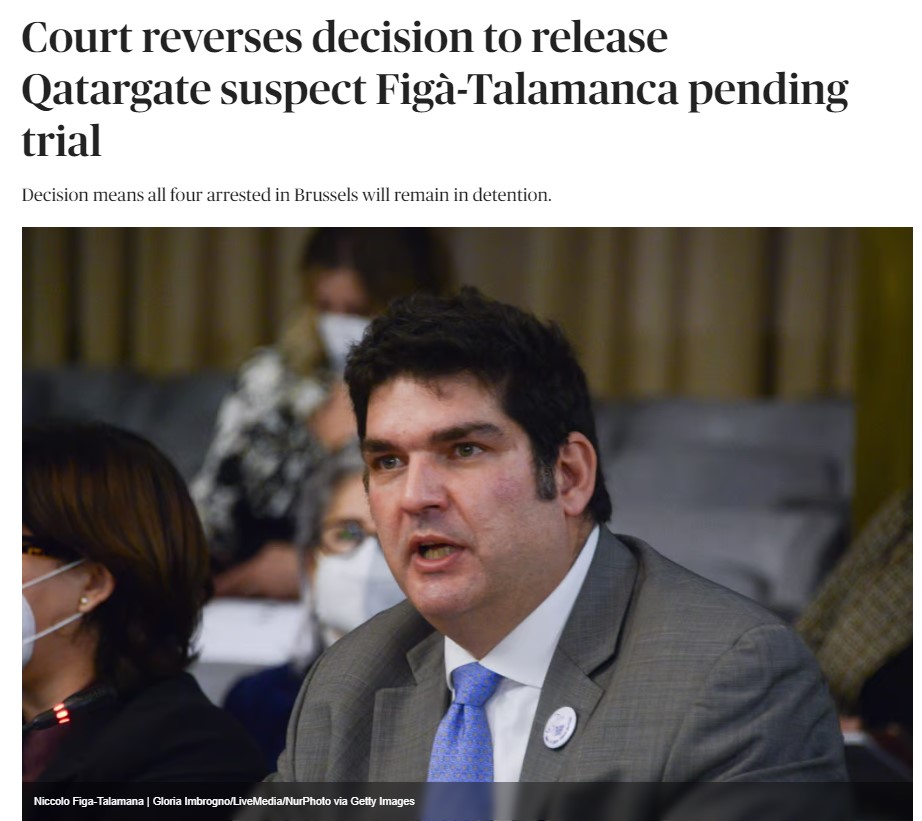
Or, the "activities" of Thierry Mariani, a member of the European Parliament of France, who is one of the fraud partners of the Greek Ms. Kaili, were "overlooked" by the expert group of the International Transparency. The name of the person accused of corruption, breach of trust, as well as money laundering is also used in corruption investigations related to Russia. It is also reported that he met with the Chairman of the Crimean Parliament Vladimir Konstantinov in Simferopol in 2019 and received expensive gifts and bribes. It should be noted that Thierry Mariani, the former Minister of Transport of France, is the author of the phrase "Crimea belongs to Russia". source
By the way, Thierry Mariani, who is accused of numerous criminal cases, is one of those who supported the adoption of a resolution against Azerbaijan in the French Parliament.
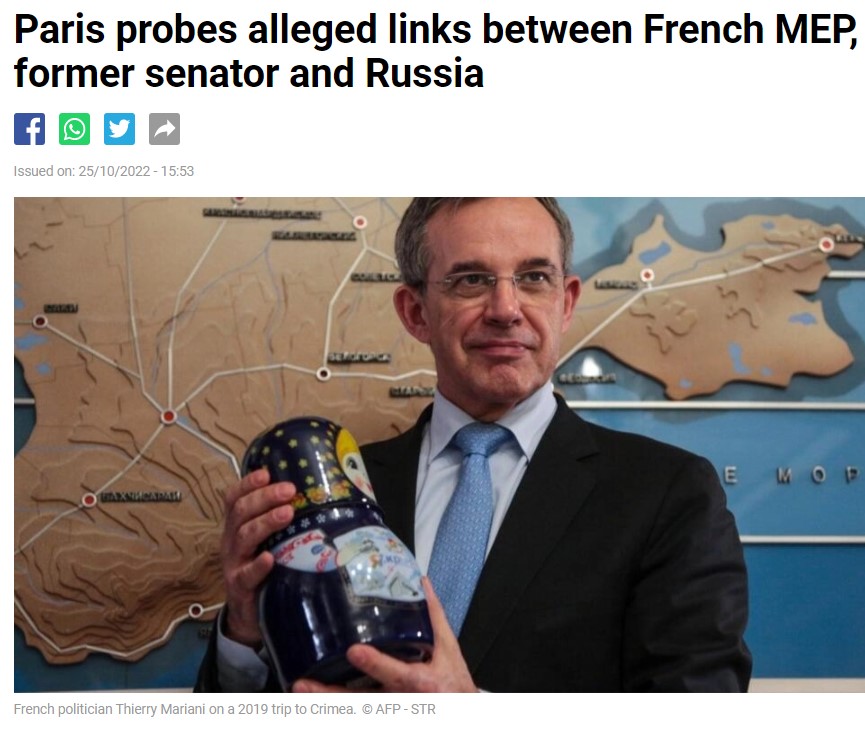
The facts and statistics of embezzled sums contained in the joint report of the European Anti-Fraud Office (OLAF) and the European Union's justice directorate confirm that a systematic corruption network has been established throughout the EU. source
EU countries lose 323 billion euros annually as a result of corruption. This is 1/3 of the budget of the EU for 2014-2020. The number of criminal cases related to "abuse of official powers" and "bribery" opened by the police and prosecutor's offices exceeded 67,800 in one year. In Europe, funds are "laundered" through consulting companies, referring to the "experience" of France, and even "disappear" without specifying the reason. source
These facts represent a small fraction of corruption and economic crime in Europe, while reports of deep-seated transnational economic crime in the region confirm that corrupt European officials and public organizations under their patronage, including Transparency International, are engaged in blatant political fraud. This organization demonstrates the hypocrisy, bias and fraud of a lobby group that runs extensive corruption systems in Europe, especially in Greece and France, as well as in the European Union, by turning a blind eye to the activities that damage the EU's overall image of transparency. From this point of view, it would be correct to call the "2022 Corruption Perceptions Index" report just an example of political speculation.




















